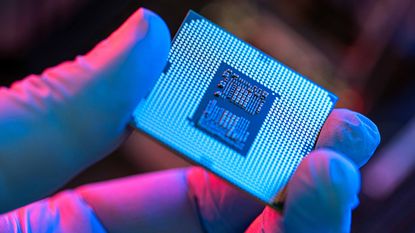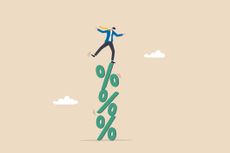Arm IPO: Should You Buy ARM Stock?
Shares of Softbank-owned Arm started trading on Thursday, September 14, but some are warning of "limited upside" to this red-hot IPO.


The hottest initial public offering (IPO) in years has thus far lived up to its hype. Arm Holdings (ARM) priced its IPO at the top end of its range of $47 to $51 a share. The listing gives the British chip designer a market value of $54.5 billion, while raising $5 billion in fresh capital in the process.
Arm's American depositary shares began trading September 14 under the ticker ARM on the Nasdaq Global Select Market. ARM opened today at $56.10. Shares reached $66.28 in intraday trading before settling at $63.59.
As the biggest upcoming IPO of 2023, Arm was bound to get more than its fair share of attention. That the ARM IPO also happens to be taking place in the red-hot tech sector only adds to its allure.

Sign up for Kiplinger’s Free E-Newsletters
Profit and prosper with the best of expert advice on investing, taxes, retirement, personal finance and more - straight to your e-mail.
Profit and prosper with the best of expert advice - straight to your e-mail.
Parent SoftBank Group acquired Arm in 2016 for about $32 billion, so it appears to have put its initial capital to good use. Retail investors typically don't get access to hot IPOs, which is really just as well. It's too easy to buy high under the best of circumstances. Frenzied opening day trading only compounds the problem.
But there's a pretty bearish fundamental case to be made against the Arm IPO too.
Steer clear of Arm IPO
David Trainer, CEO of New Constructs, a research firm powered by artificial intelligence, is best known for being skeptical of some of the hottest IPOs of the past few years. So when Trainer puts out a bearish call on the Arm IPO, it's bound to generate controversy.
"After a nearly two-year drought in the IPO market, SoftBank is wasting no time by offering Arm Holdings to the public markets, and at a valuation that is completely disconnected from the company’s fundamentals," Trainer writes in note to clients Tuesday.
The analyst adds that Arm's valuation "implies that the company needs to grow its revenue by over 20% compounded annually every year for the next decade, which is a highly unlikely scenario."
Arm faces a growing brigade of formidable competitors in each of its end markets, Trainer notes. "Many of the competitors have more than enough capital and expertise to build their own custom solutions and box Arm out of many of the markets in which it needs to grow to justify its lofty IPO valuation," he says.
The bottom line? "Investors should avoid this IPO, as we see very limited upside ahead," Trainer says.
Related Content

Dan Burrows is Kiplinger's senior investing writer, having joined the august publication full time in 2016.
A long-time financial journalist, Dan is a veteran of SmartMoney, MarketWatch, CBS MoneyWatch, InvestorPlace and DailyFinance. He has written for The Wall Street Journal, Bloomberg, Consumer Reports, Senior Executive and Boston magazine, and his stories have appeared in the New York Daily News, the San Jose Mercury News and Investor's Business Daily, among other publications. As a senior writer at AOL's DailyFinance, Dan reported market news from the floor of the New York Stock Exchange and hosted a weekly video segment on equities.
Once upon a time – before his days as a financial reporter and assistant financial editor at legendary fashion trade paper Women's Wear Daily – Dan worked for Spy magazine, scribbled away at Time Inc. and contributed to Maxim magazine back when lad mags were a thing. He's also written for Esquire magazine's Dubious Achievements Awards.
In his current role at Kiplinger, Dan writes about equities, fixed income, currencies, commodities, funds, macroeconomics, demographics, real estate, cost of living indexes and more.
Dan holds a bachelor's degree from Oberlin College and a master's degree from Columbia University.
Disclosure: Dan does not trade stocks or other securities. Rather, he dollar-cost averages into cheap funds and index funds and holds them forever in tax-advantaged accounts.
-
-
 The Era of Super-Low Interest Rates Could Be Over: The Kiplinger Letter
The Era of Super-Low Interest Rates Could Be Over: The Kiplinger LetterThe Kiplinger Letter We’re likely never going back to the historically low rates that prevailed in late 2019 and early 2020.
By David Payne Published
-
 The Simple Yet Devastatingly Effective Secret To Warren Buffett and Oprah's Success
The Simple Yet Devastatingly Effective Secret To Warren Buffett and Oprah's SuccessA look at the common lesson to learn from the success of Warren Buffett and Oprah Winfrey.
By Eric McLoyd Published

